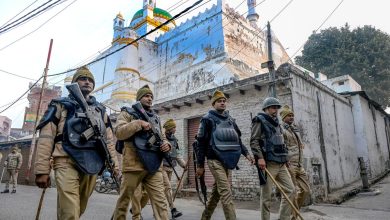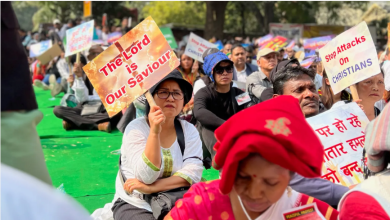Upcoming Indian elections raise concerns as BJP eyes third term: Experts
 Islamabad: Foreign policy experts have expressed serious concerns over upcoming elections in India as the Bharatiya Janata Party (BJP) eyes a third term in power, raising the dread of further escalation in Hindu fundamentalism and compromises on the rule of law.
Islamabad: Foreign policy experts have expressed serious concerns over upcoming elections in India as the Bharatiya Janata Party (BJP) eyes a third term in power, raising the dread of further escalation in Hindu fundamentalism and compromises on the rule of law.
The experts made these remarks on Thursday during a roundtable, “Democracy in India: New Dynamics & Evolving Scenario,” held at the Institute of Policy Studies (IPS), Islamabad.
The speakers said that biased constitutional interpretations in India signaling its shift from a secular state to a Hindu-centric one. This has undermined the rule of law, influenced by Hindu nationalism, leading to an autocratic bureaucratic structure with Hindu extremists capitalizing on divisive issues.
Professor, Dr Mujeeb Afzal said that the Indian constitution, initially contextualized for the diversity within the nation, has transformed into a compromised rule of law. This is due to the influence of Hindu nationalism in shaping the constitutional discourse and its interpretation of the constitution, signaling potential challenges to its secular fabric.
Dr Afzal said, if this trend continued, it could lean more aggressively towards a Hindu perspective. In light of these developments, the question of constitutional legitimacy and interpretation remains a critical aspect of India’s political landscape and democratic ethos. This was endorsed by journalist, Dr Farooq Adil, who quoted Barack Obama saying in 2023 about the precarious state of minorities in India, that they face pressure and lack safeguards, with no support from the state and its institutions. The continuation of such a situation could strain Indian cohesion. He also observed that the Indian media landscape has been focusing on dispersing narrative in a way that often causes erosion of democratic values.
Dr Adil said the prevailing situation draws attention to a complex state of affairs in India, marked by challenges to minority rights, a shift towards extremist ideologies, loss of media integrity, erosion of trust in key institutions, and the emergence of an autocratic trend with potential implications for the country’s democratic fabric.
Journalist Iftikhar Gilani said India is an exclusive democracy in which the upper caste dominates politics and has a disproportionate amount of influence in governing the nation. He said extremist Hindus intentionally stir up controversies on the sacredness of cows, disputes with Muslims, and historical rivalry with Pakistan. As the 2024 elections draw near, the radical elements are capitalizing on conflicts with Muslims. With these developments, India is gradually transitioning from a ‘Secular state’ to a ‘Hindu state’ or rather an anti-non-Hindu state, where the emphasis on Hindu identity and ideology marginalizes and potentially discriminates against religious and ethnic minorities, said Abrar Hussain.
In his concluding remarks, Chairman of IPS Khalid Rahman underscored the dichotomy within India’s democratic framework, noting that while it is recognized as the world’s largest democracy, the essence and values of democracy fall short.
He said that association of terms like ‘secularism and democracy’ in India’s rhetoric is notable, yet the practical reality reflects an overwhelming promotion of nationalism. This fervent promotion, he observed, makes it challenging for those not aligned with nationalist sentiments. This is not just the case with political opposition but also with civil societies and individuals. Rahman further said that, in the evolving scenario, it becomes crucial to assess the impact of India’s actions and behaviours, particularly how the Muslim world perceives them.
He underscored the importance of scrutinizing the treatment of Muslims in India and gauging the response from the Muslim world, which suggests certain indifference. This has led to a bureaucratic structure mirroring an autocratic system reminiscent of the colonial past.
He said while a unified secular discourse prevails at the national level, there is a tendency towards communism at the Congress level. The geographical and civilizational aspects, grounded in the concept of dharma, significantly influence how the constitution is interpreted and applied. Key manifestations include the revocation of Article 370 and the construction of Ram Mandir, prominently featured in the BJP’s manifesto. Notably, the judiciary has not actively intervened in such matters, he said.








